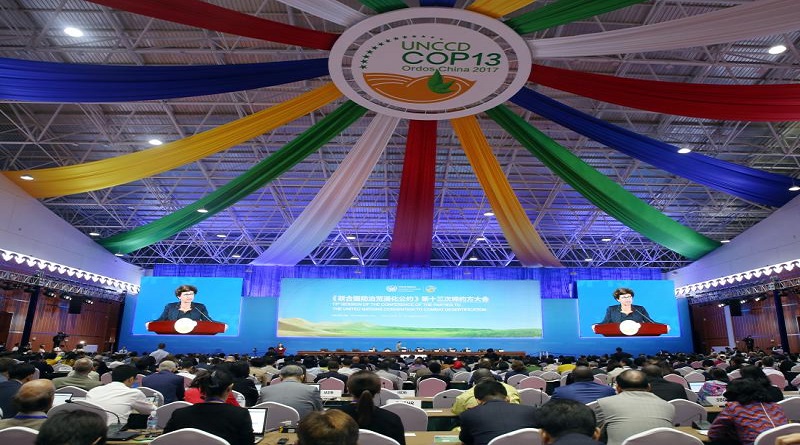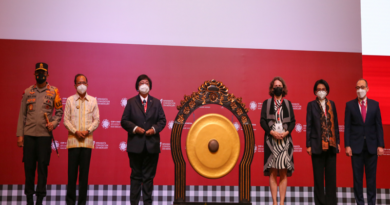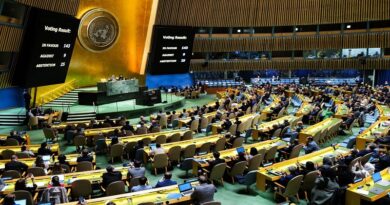Nations to announce land restoration targets as summit opens in Mongolia
Minister of State Forestry Administration, China, Zhang Jianlong, on Thursday September 7, 2017 opened the first ever United Nations conferences of the Rio Conventions to be hosted in China. The thirteenth session of the United Nations Convention to Combat Desertification (UNCCD) is taking place from 6-16 September in Ordos, Inner Mongolia.
The 196 country Parties attending the 13th session of their Conference are expected to agree on a 12-year Strategy to contain runaway land degradation that is threatening global food and water security.
Ministers are expected to announce their targets for land restoration, to agree on measures to address the related emerging threats of forced migration, sand and dust storms, and to agree on actions to strengthen the resilience of communities to droughts. Globally, 169 countries are affected by desertification, with China accounting for the largest population and area affected.
China’s target is to reduce by 50 percent all of its desertified areas by 2020, Zhang said. “A fire burns harder when we all add some tinder,” he said, urging countries to agree on a new strategic direction that will lead to ecological restoration.
China has developed industrial models to combat desertification, and reported that “the area affected by desertification has declined for three inventory periods in a row, since 2004.”
Only 20 years ago, Ordos, the city and burial place of Ghengis Khan was an empty desert. Today it is a green, modern city with a growing industrial base, and a global model of the economic potential of restoring and rehabilitating degraded land at scale.
More than 2 billion hectares of productive land is degraded and more than 1.5 billion people are living off degraded land. Without joint action, the annual loss of 12 million hectares of productive land, on average, is expected to worsen in the face of increasing, frequent and recurrent severe droughts.
Severe drought in 2017 led to what many claim is the largest humanitarian crisis since the end of the second world war, with more than 25 million people across four countries – Nigeria, Yemen, South Sudan, Somalia – facing starvation and famine.
By restoring degraded land, countries would be better placed to respond to new, complex and interconnected challenges that are emerging, such as forced migration, food and water supply and the loss of livelihoods.
Monique Barbut, UNCCD Executive Secretary, said the political, social and economic costs of land degradation are high, but expressed optimism and enthusiasm about the outcomes of the Conference.
In less than 2 years, since the adoption of the land degradation neutrality targeting under the Sustainable Development Goals, a seismic shift has taken place.
“Today, 110 of the 169 countries that declared in 2013 that they are affected by land degradation or drought have expressed interest in recovering large areas of degraded over the next 12 years, under a special global initiative, the Land Degradation Neutrality Target Setting Programme,” she observed.
During the two-week Conference, many countries are expected to announce their targets – the amount of the land they plan to restore or rehabilitate during the next 12-years.
But Barbut said it is challenging for countries to make commitments to achieve this Sustainable Development Goal (SDG) target when there is no assured finance, and welcomed a private sector-led profit-making financing initiative under development that is designed to support the realization of the target.
“Under the New Strategy, drought mitigation would, for the first time, become a strategic area of focus of the Convention,” Ms Barbut asserted.
“We must be well prepared for the future, and national drought policies which are based on realistic vulnerability assessments and that have effective early warning systems and risk mitigation measures will be vital,” Barbut stressed.
More than 70 ministers are expected to attend the Conference during the high-level segment, when most of the emerging issues will be addressed and country commitments of the targets will be announced.




